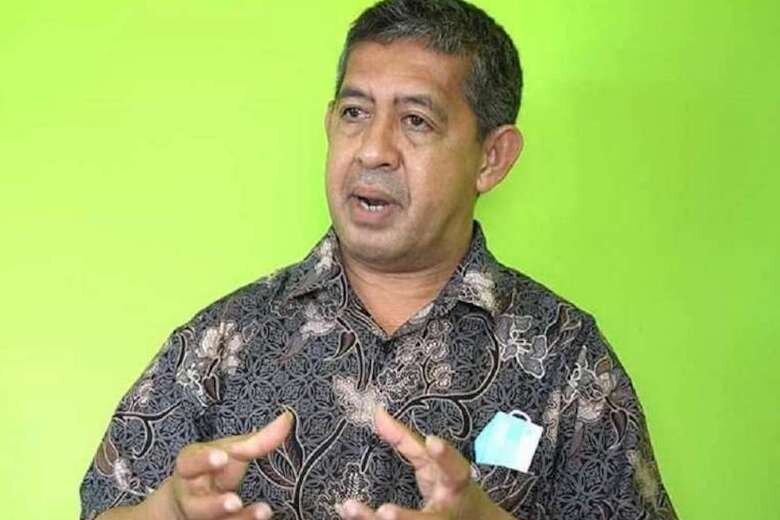In Pakistan, an Islamic extremist group has threatened minority Hindu traders in Wadh town of Balochistan province days after a Hindu businessman was gunned down.
“Women should be stopped from unnecessarily leaving their houses and roaming the markets.They are mostly seen in shops of Hindus,” stated Karwan Saif Ullah, an Islamist militant group, which recently circulated pamphlets asking women to stop leaving their houses unnecessarily and to refrain from frequenting shops owned by Hindus. It also warned Hindu traders against allowing women in their shops.
Hindus in Balochistan protest the murder of Ashok Kumar at the Press Club in Lasbela on June 3. (Photo supplied)
Wadh town is home to more than 300 Hindus and has 45 shops belonging to the Hindu community. Local Hindus have been living in fear since May 31 when an unidentified motorcyclist shot a Hindu civilian dead as he opened his uncle’s shop. Several Hindus joined Balochistan National Party members in holding a protest at a local press club. They termed the threat “open terrorism” and accused the state of failing to protect minorities.
Hindu and Sikh businessmen in Muslim-majority Pakistan often complain of threats for extortion money and there have been several cases of killings.
Same sex marriage has become a hot topic for the Catholic Church in Muslim-majority Indonesia. Recently, a Catholic priest’s comments about same-sex marriage and the Church’s position triggered debate and garnered significant media attention.
Father Otto Gusti Madung of the Society of the Divine Word, who has a PhD in Philosophy from Germany, sparked controversy by claiming the Catholic Church will probably accept same-sex marriages one day. He made the comments during a talk with members of the Journalists Union for Diversity in April, but they came to public attention in late May.

Father Otto Gusti Madung of the Society of Divine Word. (Photo supplied)
The priest is the director of Ledalero Catholic School of Philosophy in East Nusa Tenggara province and teaches philosophy and human rights. His comments triggered both favorable and negative reactions. There has been a wave of protests from many Catholics including his fellow priests, with some demanding his removal from his post.
The priest later issued an apology and clarified that his opinion on same-sex marriage was a personal view. The Catholic Church prohibits same-sex marriage in the Church and the blessings of such unions.
Several Catholic priests in the Philippines are spearheading a strong movement to resist a potential return of current President Rodrigo Duterte as vice-president through an election next year. Redemptorist priest Father Amado Picardal has written a poem titled The God I Don’t Believe In that attacks “evil Duterte” and accused him of abusing power and office to enrich himself.
Father Picardal has been a strong critic of Duterte’s involvement in human rights violations including extrajudicial killings of thousands of drug users in the so-called war on drugs. The priest claimed in 2018 that he escaped an assassination ordered by Duterte for his views on extrajudicial killings.

Father Amado Picardal is pictured with members of the Philippine police in Butuan City in Mindanao in this file photo. (Photo: Father Picardal)
Meanwhile, Vincentian priest Father Danny Pilario has joined a movement called Duterte Wakasan Na or End Duterte Now, which is seeking to prevent the president from establishing a political dynasty. The priest and the movement hope to persuade people not to vote for Duterte or his daughter, Davao city mayor Sara Duterte, in the next presidential polls in May next year.
Duterte became the 16th president of the Philippines in 2016 and his regime has faced criticism for failing to reduce poverty, human rights violations including the deadly anti-drug war, controversial remarks and verbal attacks on the opposition, rights advocates and the Church.
Catholic Church officials in Myanmar have made an urgent appeal to end attacks on religious buildings after three Catholic churches were struck by military shelling in two weeks.
Father Celso Ba Shwe, apostolic administrator of Loikaw Diocese in Christian-majority Kayah state, requested armed groups not to deploy troops or attack and burn down places of worship such as temples, mosques and churches as well as hospitals and schools.

Children and elders displaced by fighting between the military and ethnic rebels wait for food distributed by volunteer groups while taking refuge at a monastery in Namlan in Myanmar’s eastern Shan state. (Photo: AFP)
Without mentioning the military, the priest said that intentionally attacking places of worship, hospitals and schools constitutes war crimes under the Hague Conventions. Churches, convents and monasteries have opened their doors to fleeing civilians, especially the elderly, children, women, the sick and the disabled, as fighting escalates in Kayah state and neighboring Shan state.
The latest appeal from the Church came a day after Our Lady, Queen of Peace Church in Demoso town was hit by military shelling on Monday. Earlier, Sacred Heart Church in Kantharyar village near Loikaw was hit by artillery shelling on May 23, killing four people and wounding at least eight others. St. Joseph Church in Demoso town was also hit by military artillery on May 26.
A policeman in Timor-Leste shot dead two people and wounded another, sparking a public outcry for police reform in the Catholic-majority country. The unidentified off-duty officer’s actions in capital Dili last Saturday triggered a violent clash between youths and police, with the locals setting the house of the policeman on fire.
Credit: Source link




